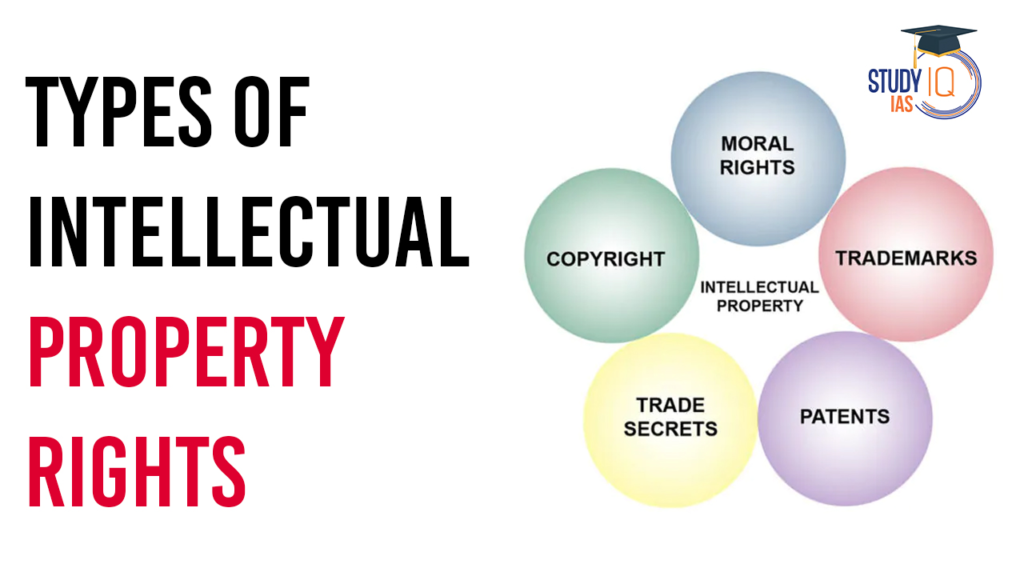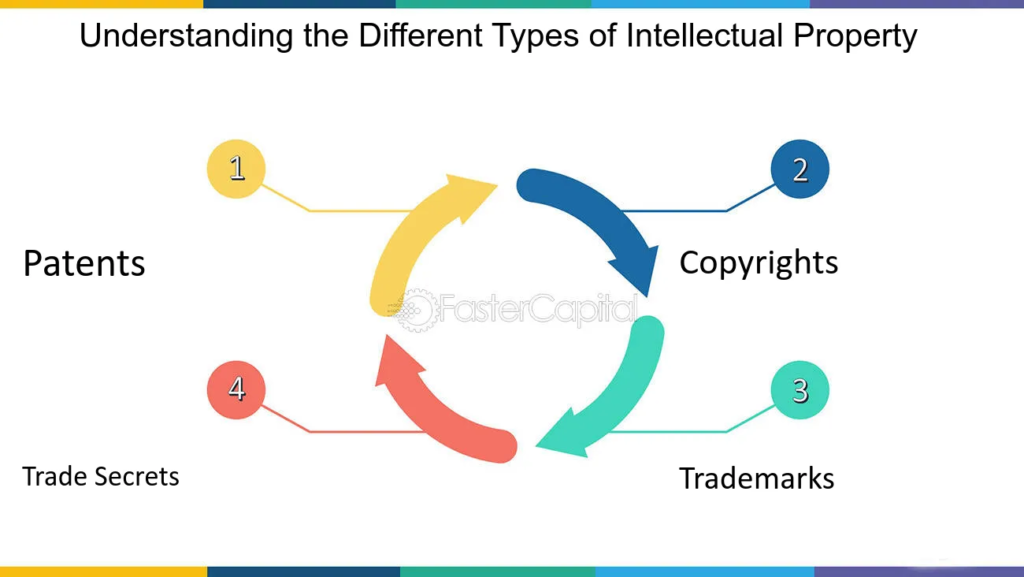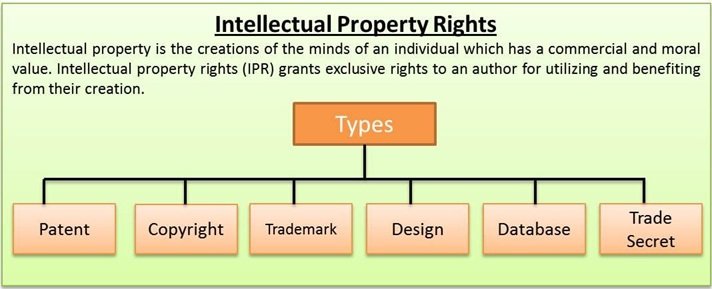Which Types of Intellectual Property Can Only Be Owned by a Business (IP) plays a vital role in the protection and commercialization of ideas, inventions, designs, and branding. IP helps businesses and individuals safeguard their creative works from infringement while maximizing their potential economic value. When it comes to IP ownership, there are various categories, some of which can be owned by individuals, while others are reserved for businesses or entities. This article will explore which types of intellectual property may only be owned by a business, offering a clear understanding of IP law and its implications.
Understanding Intellectual Property and Its Types
Intellectual property encompasses a wide range of legal protections granted to the creators or owners of certain types of intangible assets. These assets can include inventions, literary and artistic works, designs, symbols, names, and more. IP helps businesses and creators protect their innovations, and there are several distinct types of intellectual property, each with its own set of ownership rules.
The main types of intellectual property include:
- Patents
- Trademarks
- Copyrights
- Trade secrets
- Design rights
Each of these categories can be owned by individuals or businesses, depending on the jurisdiction and specific circumstances. However, certain types of IP have restrictions on who can own them. Types of Intellectual Property May Only Be Owned by a Business.
Patents: Often Owned by Businesses

A patent is a legal right granted to the inventor of a new product, process, or design that is novel, non-obvious, and useful. In exchange for the exclusive rights to manufacture, use, or sell the patented invention, the inventor must disclose their innovation to the public. Patents are typically awarded for a specific period, often 20 years, after which the invention enters the public domain.
Can Patents Be Owned by Businesses?
While individuals can apply for and own patents, in many cases, patents are owned by businesses or corporations. This is because inventions are often created within the scope of employment, and the intellectual property created during employment typically belongs to the employer. This concept is known as the “work for hire” doctrine, which states that any work or invention made by an employee in the course of their job is automatically owned by the employer.
For example, in a large tech company like Apple or Google, most of the patents filed for new technology are owned by the company itself. In these cases, the employees who invent the technology are generally not listed as the patent owners, though they may receive compensation for their contribution.
Why Do Businesses Own Patents?
Businesses often own patents because:
- Control: Owning a patent allows the business to control the use of its invention, preventing competitors from exploiting the idea without permission.
- Revenue Generation: A company can license its patents to other businesses, generating additional income.
- Competitive Advantage: Patents help businesses maintain a competitive edge in the market by safeguarding their innovations.
Trademarks: Typically Owned by Businesses
A trademark is a sign, design, word, or other distinguishing feature that identifies the source of goods or services and distinguishes them from others. A trademark helps build a brand identity and allows businesses to protect their reputation and customer loyalty. It can include logos, product names, slogans, and packaging designs.
Can Trademarks Be Owned by Businesses?
While individuals can technically own trademarks, trademarks are most commonly owned by businesses. In fact, a trademark is typically associated with a brand identity that is directly linked to the reputation and activities of a business. Trademarks help consumers easily identify the source of a product or service, and they play a crucial role in marketing.
Why Do Businesses Own Trademarks?
There are several reasons why businesses commonly own trademarks:
- Brand Recognition: A trademark helps build and protect a company’s brand, making it easier for consumers to identify products and services.
- Marketing Power: Trademarks serve as essential tools for businesses to market their products effectively.
- Legal Protection: A registered trademark provides legal protection against unauthorized use by competitors.
Trade Secrets: Exclusive to Businesses
A trade secret is confidential business information that gives a company a competitive advantage. This can include formulas, processes, designs, or any valuable information not publicly disclosed. The primary feature of trade secrets is that they are protected by confidentiality agreements, and their value comes from being kept secret. Unlike patents, trade secrets are not registered with government authorities and can last indefinitely as long as they remain secret.
Can Trade Secrets Be Owned by Businesses?

Yes, trade secrets are almost exclusively owned by businesses. Although individuals can possess trade secrets in some cases (e.g., a solo inventor with a secret formula), most trade secrets are tied to the operations of a business and form a crucial part of its intellectual property portfolio.
Why Do Businesses Own Trade Secrets?
Businesses own trade secrets because:
- Cost-Effective: Unlike patents, trade secrets do not require government filings, making them a cost-effective way to protect valuable information.
- Unlimited Duration: As long as the secret is maintained, trade secrets can provide protection indefinitely, whereas patents eventually expire.
Copyrights: Can Be Owned by Individuals or Businesses
Copyright protects original works of authorship, such as books, music, software, and art. Copyright grants the creator exclusive rights to reproduce, distribute, and perform their work.
Can Copyrights Be Owned by Businesses?
Yes, businesses can own copyrights, particularly when the work is created within the scope of employment. Similar to patents, works made for hire are typically owned by the business that commissions or employs the creator. For example, a software company might own the copyrights to a program developed by its in-house developers.
Why Do Businesses Own Copyrights?

Businesses often own copyrights for several reasons:
- Revenue Generation: Owning a copyright allows a business to license or sell the work, generating income.
- Branding: Copyrighted works such as logos, websites, and marketing materials contribute to a company’s branding efforts.
Conclusion: Business Ownership of Intellectual Property
In summary, while various forms of intellectual property can be owned by both individuals and businesses, there are specific types of IP that are more commonly owned by businesses due to the nature of their creation or commercialization. Patents, trademarks, and trade secrets are among the most prominent forms of intellectual property that businesses typically own. These IP assets are essential for maintaining a competitive advantage, generating revenue, and building brand recognition. Understanding the nuances of IP ownership can help businesses effectively leverage their intellectual assets while ensuring legal protection.
Desclaimer
The information provided in this article is for general informational purposes only and should not be considered legal advice. For specific legal guidance regarding intellectual property ownership, consult a qualified attorney or IP professional. The author and website are not responsible for any actions taken based on the content provided.










